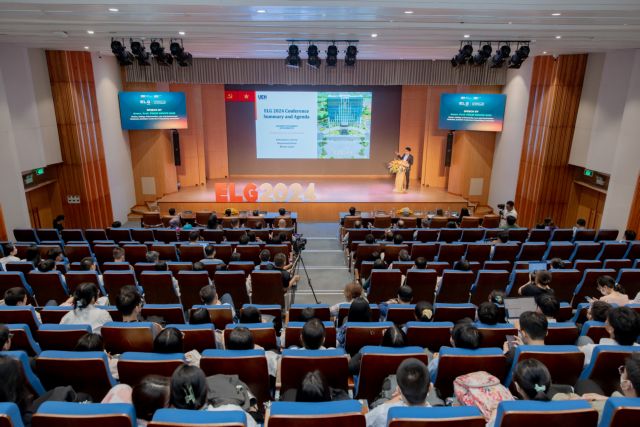
Local and international researchers, practitioners and policy makers met to discuss innovative approaches to the challenges posed by digitalisation and climate change in developing countries at the International Conference on Economics, Law, and Government that wrapped up on July 31.
The two-day conference with the theme “Approaches to the twin transition: Digitalisation and climate change in developing countries,” tabled more than 120 articles by authors from many countries on a range of topics like climate change, environmental sustainability, legal methods and digital transformation.
Discussions also focused on aspects such as legal framework, economic policy, innovation in agriculture, and technology adaptation.
Experts shared knowledge, experiences and new initiatives to promote sustainable development through digitalisation and measures to mitigate the impacts of climate change.
Assoc. Prof. Pham Khanh Nam, rector of the College of Economics, Law and Government, the event’s organiser, said: “The ELG 2024 annual international conference not only provides opportunities for experts to meet and exchange ideas but also contributes practical solutions for the future of developing countries amidst the current twin transition.
“This year’s conference presentations highlight various perspectives and expertise in the fields of climate change, environmental sustainability, renewable energy and digital transformation.
“With numerous researchers from around the world participating, the conference aims to enhance our understanding of the role of digitalisation and climate change in contemporary economic development.
“Participants will gain academic and policy insights into these dual transitions, particularly their impact on developing countries.”
Digital solutions can reduce global emissions by 20 per cent, according to the World Economic Forum 2022.
Experts said digitalisation plays an important role in supporting sustainable growth in the context of needing to accelerate action to respond to global climate change.
With this twin transition approach, business leaders and policymakers can operate an integrated programme of digital transformation and sustainable development to drive technical tools.
Digital technology serves the process of achieving sustainable development goals, ensuring a stronger foundation for their organisation in future.
The twin transition approach believes that combining digital transformation and green transformation can bring great benefits to sustainable development instead of approaching digital and sustainability separately.
The twin transition can create a positive impact by greening technology and infrastructure while promoting sustainability across the entire organisation.
Despite recognising the urgency of the twin transition, some organisations still face challenges due to inconsistent approaches, the complexity of implementation, accountability requirements, or conflicts between strategic priorities./.
(VNA)




